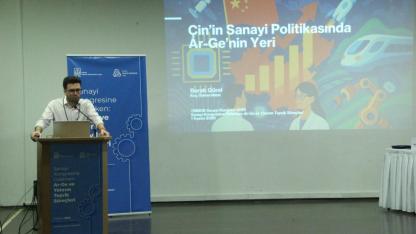Following the 4.5% growth recorded in the first quarter, it is seen that the general market expectation points to a 10.5% contraction in the 2Q20 period with the effect of the Covid-19 outbreak and related lockdown measures. We expect a contraction of 12.5% in 2Q20.
As it is known, the economic activity that decreased with the “stay at home” measures during the 2Q20 period, especially in April and May, had an effect especially on the production side, and the demand component also contracted simultaneously due to the pandemic effects. After the first confirmed Covid-19 case in Turkey, restriction measures that was brought, the slowdown of the production activities of companies and the effect of restrictions to the service sector caused minimum level in terms of economci activities in the mentioned period. Still, the economy was not completely switched off as in Europe. While the period in question reflected on the private consumption side on the demand component side, loan growth was supported by interest cuts to mitigate this effect.
The data series we have for 2Q20, such as PMI and industrial production, show that despite the growth that started in June, there was a severe contraction effect in April and May. Although the normalization that started in June and accelerated in the following period slightly lessened the impact, it will reflect the impact more to the 3Q20 period rather than recovering the 2Q20 outlook. April, May and June industrial production data also captured the picture of 2Q20 GDP growth. It is seen that industrial production contracted by 16.9% in 2Q20 compared to the previous year. Therefore, despite the relatively positive June data, we will see a double-digit contraction in 2Q20, just like global economies.
We see the positive impact of increased returns to work and accelerated business activities within the scope of the economic normalization process in the 3Q20 period. The reflection in leading indicators confirms that the economy is in the phase of recovery from its bottom point. On the other hand, the increasing volatility of the TRY has to prevent the support of loan growth, and the increasing loan costs with the tightening moves of the Central Bank will limit the recovery on the demand side. The momentum of economic recovery from the middle of the 3Q20 to the end of 4Q20 will depend on the course of the pandemic and its effects. In this period, the economic measures taken by the government to mitigate the contracting or slowing effect of the pandemic, especially focused on firm-based incentives, were extended for one-month periods upon the need and it is expected to continue to be extended according to the need.
Tera Yatırım
Hibya Haber Ajansı











Yorumlar
Kalan Karakter: